Posted on 2/26/2026

Handing over the car keys to a teen driver is a major milestone for both the teen and their parents. It often comes with excitement mixed with a fair amount of anxiety. Teen drivers are still building experience, learning how to react to unpredictable situations, and developing habits that can last a lifetime. The good news is that with the right guidance, teens can become safe, confident drivers who take their responsibilities seriously. Open conversations, consistent expectations, and a reliable vehicle all play a role in keeping teen drivers safe on the road. Start With Defensive Driving Basics One of the most important lessons for teen drivers is understanding that not everyone on the road follows the rules. Defensive driving means staying alert, anticipating potential hazards, and being prepared to react safely. Teens should be encouraged to keep a safe following distance, watch for sudden stops, and always be aware of their surroundings. New drivers often focus heavily o ... read more
Posted on 1/30/2026
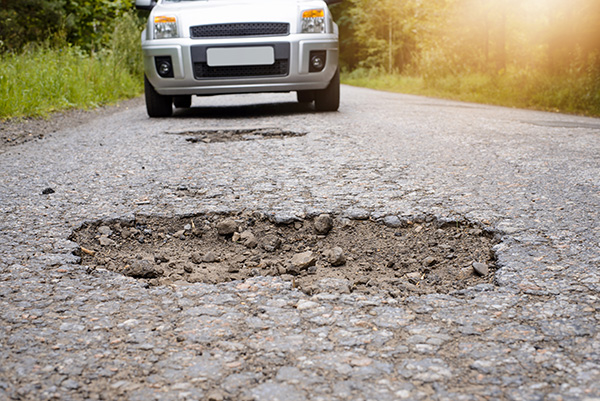
A pothole hit can feel like nothing more than a loud thump. Then a day later you realize you’re holding the steer ing wheel slightly turned just to keep the car straight. That pull might be mild, but it’s your car telling you something shifted, bent, or loosened up. Sometimes it’s just an alignment angle that got knocked out. Other times, the pothole started a chain of issues that gets worse the longer you drive on it. Why A Pothole Can Change The Way The Car Tracks When a wheel drops into a pothole, it’s not just the tire taking the hit. The impact loads the wheel, tire, and suspension all at once. That force can bend a wheel slightly, damage a tire internally, or jolt alignment angles out of spec. It can also stress steering and suspension joints that were already a little worn. The pull happens because the tires are no longer pointing and rolling the same way. If one front wheel is angled slightly differently, or one tire has a different ... read more
Posted on 12/19/2025
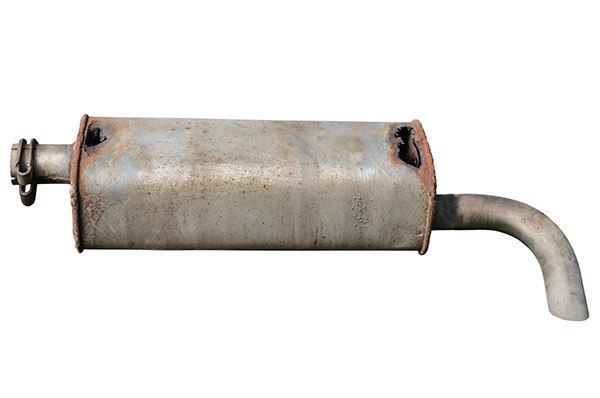
Exhaust parts do a lot of work without much attention. The muffler keeps noise under control, while the catalytic converter cleans up the gases leaving the engine. When either one starts to fail, the car will usually give you a few warning signs before things get really noisy or expensive. Paying attention to those early hints can keep you safer and protect other parts of the exhaust. 1. Louder Exhaust Noise or New Rattles From the Rear One of the first signs many drivers notice is a change in sound. The exhaust may get deeper, boomier, or sharper, especially when you accelerate. Sometimes it sounds like the car suddenly grew a performance muffler you never asked for. If the muffler shell or internal baffles crack, they can rattle and buzz. A loose heat shield or hanger can also create a metallic rattle that changes with bumps or throttle. In the bay, we often find small holes or seams that have opened up from rust, which let exhaust escape before the muffler can q ... read more
Posted on 11/28/2025

Holiday traffic in Houston can turn a quick errand into a crawl. Engines hate that combination of slow speeds, long idles, and hot weather that lingers even late in the year. If you have ever watched the temperature gauge creep up while inching forward, you know the stress. The good news is that most overheating problems can be prevented with a little prep and a few smart habits in traffic. Why Heat and Traffic Raise Engine Temperatures At highway speed, airflow through the radiator is plentiful, so heat leaves the engine easily. In stop-and-go traffic, the car relies almost entirely on the electric cooling fan to pull air through the radiator and the A/C condenser. The engine stays hot, the A/C adds load, and underhood temperatures rise. If anything in the cooling path is weak, such as a tired fan motor or a partially clogged radiator, the gauge will start to climb long before you reach your destination. Common Causes of Overheating in Congested Driving ... read more
Posted on 10/31/2025
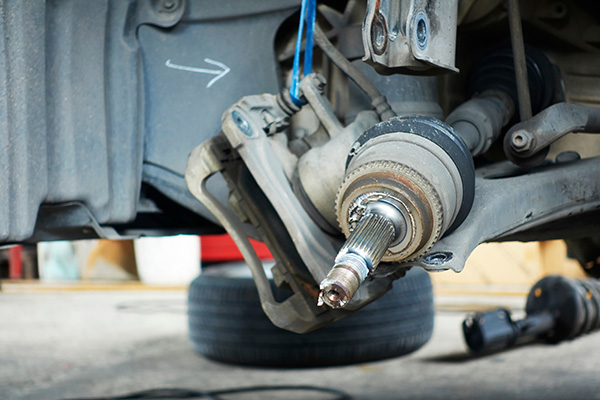
Hearing a clicking sound when turning your car? That rhythmic noise could be coming from the CV joints or axles, and it’s not something to ignore. These components are essential to how your vehicle drives, especially when navigating corners or accelerating. Clicking, popping, or clunking sounds often point to wear that could lead to bigger issues down the road. Knowing what causes these noises and when to have them inspected can help prevent further damage and keep your car running safely. What CV Joints and Axles Actually Do CV stands for “constant velocity.” CV joints are part of the axle shaft assembly and are designed to transfer power from the transmission to the wheels at a consistent speed, even while turning or going over bumps. Front-wheel drive and many all-wheel drive vehicles rely on these joints for smooth operation. The axle itself is a shaft that connects the wheels to the drivetrain, and the CV joints allow that axle to flex as the ... read more
Posted on 9/26/2025
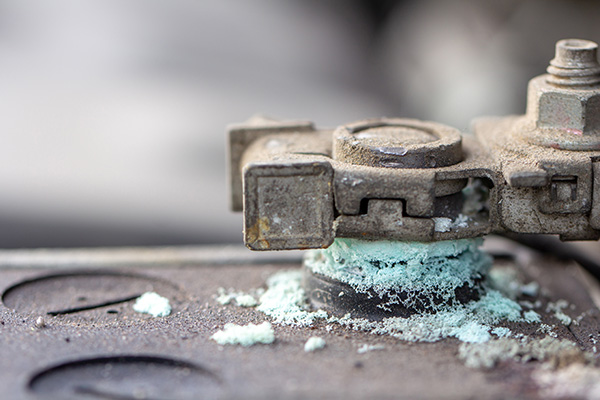
Corrosion on your car’s battery might seem like a minor issue, but it can quickly turn into a major inconvenience, particularly in cold weather. What starts as a bit of white or blue-green buildup around the terminals can interfere with your vehicle’s ability to start and charge properly. If you’ve ever turned the key on a frosty morning and heard only a weak click or sluggish cranking, battery corrosion may have been part of the problem. Knowing how corrosion forms, how it affects performance, and what to do about it can help you avoid getting stranded and keep your battery and charging system in good shape year-round. What Causes Battery Corrosion Corrosion develops as a result of the battery's natural chemical process. As the battery charges and discharges, it vents small amounts of hydrogen gas. When this gas mixes with moisture and the metal around the terminals, it forms acidic deposits. These deposits build up on the battery posts and ca ... read more
Posted on 8/29/2025

Most drivers know the dangers of drunk or distracted driving, but drowsy driving can be just as dangerous. Fatigue slows reaction times, reduces alertness, and impairs judgment, making it harder to stay safe on the road. In fact, studies have shown that being awake for more than 18 hours can affect your driving as much as having a blood alcohol level at the legal limit. Recognizing when you are too tired to drive is essential. Many drivers underestimate the impact of fatigue on their driving until it is too late. Common Warning Signs of Drowsy Driving One of the clearest signs that you are too tired to drive is difficulty keeping your eyes open or focused. If you find yourself blinking frequently or struggling to keep your head up, your body is signaling that it needs rest. Yawning repeatedly, missing traffic signs, or forgetting the last few miles you drove are also strong warnings. These “micro-sleeps” or lapses in attention can happen without you rea ... read more
Posted on 7/25/2025
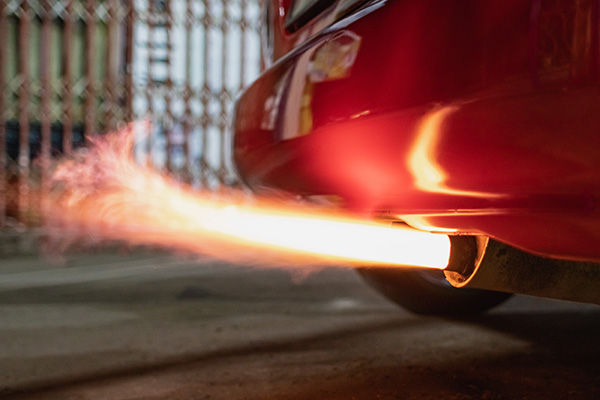
A sudden loud bang or popping sound coming from your car can be startling — and even embarrassing. This phenomenon, known as a backfire, occurs when fuel ignites outside the combustion chamber, either in the intake or the exhaust system. While it may sometimes look or sound dramatic, a backfire is a clear sign that something isn't right with your engine’s operation. Understanding why backfires happen can help you address issues early and keep your vehicle running smoothly. How a Car’s Combustion System Works To understand backfires, it helps to know how your engine burns fuel. In a typical internal combustion engine, fuel and air mix together inside the cylinders and ignite at the correct moment thanks to the spark plugs. This controlled explosion drives the pistons, creating power. Timing is everything — if the spark happens too early or too late, or if there’s an issue with the fuel-air mixture, combustion can occur outside the in ... read more
Posted on 6/27/2025

When your car is at a stoplight or parked with the engine running, you expect the engine to idle smoothly. But if the RPMs are bouncing up and down or the engine feels like it's pulsing or sputtering, there’s a good chance something isn’t working properly. Fluctuating idle speed is a sign of an underlying issue that needs prompt attention. Knowing the causes of irregular idle speed will help you address the problem before it leads to poor performance, reduced fuel economy, or a breakdown. What Is Considered Normal Idling Most modern engines idle between 600 and 1,000 RPMs when warmed up. The exact number can vary depending on the engine type and whether accessories, such as the air conditioning, are in use. While brief dips or rises in idle speed can occur, especially during cold starts or gear changes, consistent or noticeable fluctuations should be investigated. If your vehicle surges, stalls, or constantly shifts RPMs while idling, there’s ... read more
Posted on 5/30/2025
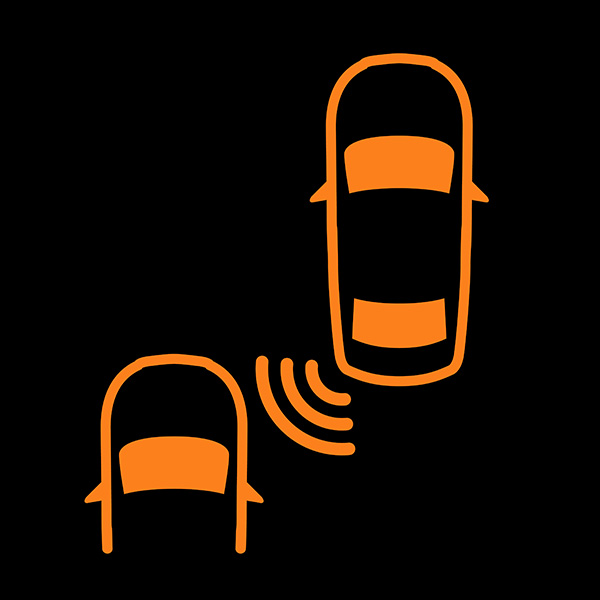
Blind spot sensors have become a standard safety feature in most modern vehicles, helping drivers avoid lane-change collisions by detecting cars just out of view. But like any technology, these sensors can fail or malfunction. When that happens, it’s important to understand what’s causing the issue and how to get it fixed. If your blind spot warning light stays off when it should be on, flashes unexpectedly, or you’re seeing a sensor error message on the dash, don’t ignore it. The system is designed to add an extra layer of protection on the road, especially in fast-moving traffic like we see around Houston. Here’s what you should do next. How Blind Spot Sensors Work Blind spot monitoring systems use radar or ultrasonic sensors mounted on the sides or rear of your vehicle. These sensors detect when another vehicle enters your blind spot—the space just behind your shoulder that your mirrors often miss. When another car enters this ... read more